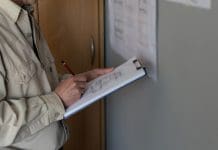An initiative that aims to improve housing and management standards for multiple occupancy, privately rented properties in 12 of Bristol’s central wards started this week
This scheme it is set to upgrade the overall management and property conditions of an estimated 4200 shared properties in Bristol’s central wards.
The scheme proposes the proactive inspection of privately rented houses in multiple occupation. This will make a significant impact on improving their management and better the conditions of rented homes to benefit current and future tenants.
Councillor Paul Smith, cabinet member for housing said: “Discretionary licensing schemes play a very important part in achieving the key housing objectives within the ‘One City Plan’. We will work with landlords to create better property standards and conditions for tenants in the private rented sector.
“The ‘Additional Licensing’ scheme will improve the living standards of tenants because it gives us the opportunity to tackle inadequate housing conditions through robust engagement with landlords. With an increasing amount of residents renting, this initiative will further our ambition to do whatever it takes to better living conditions for our citizens and provide strong protection for vulnerable tenants.
“We at the council are confident that the scheme will herald positive results. The council believes that this area based approach will improve the lives of Bristol’s tenants and enhance private housing conditions.”
The council will be working alongside city partners such as the police to ensure that non-housing issues can be identified early and resolved effectively. The aim is to provide a collective response to both the areas’ private residential concerns and any additional non-housing issues, particularly crime and homelessness.
The 12 wards in question:
Central, Cotham, Clifton, Clifton Down, Hotwells & Harbourside, Redland, Ashley, Bishopston & Ashley Down, Easton, Lawrence Hill, Southville and Windmill Hill have been declared as areas where rented properties require a licence under Part 2 of the Housing Act 2004.
Landlords will be charged a fee for licensing their properties to cover the costs of the scheme. A licence would normally last for five years and the conditions attached are used to improve management practices and standards.














